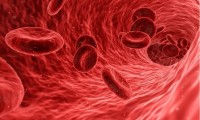-
Maximizing the Value of AI in Cancer Care
- Source: drugdu
- 476
- May 14, 2023
-
COVID-19 that occurs after vaccination carries a much lower risk of severe illness
- Source: https://www.news-medical.net/news/20230511/COVID-19-that-occurs-after-vaccination-carries-a-much-lower-risk-of-severe-illness.aspx
- 444
- May 14, 2023
-
AI used to build a 3D model of the Commander complex
- Source: drugdu
- 368
- May 13, 2023
-
Research pinpoints the time of year and hour when people have the strongest suicidal thoughts
- Source: drugdu
- 387
- May 13, 2023
-
Otsuka, Lundbeck’s Rexulti nabs new use in Alzheimer’s disease agitation
- Source: drugdu
- 258
- May 13, 2023
-
Sobi Emerges as Savior for CTI Biopharma Cash Crunch With $1.7B M&A Deal
- Source: drugdu
- 407
- May 13, 2023
-
Pfizer CEO says Medicare will likely face legal action over drug price negotiations
- Source: drugdu
- 361
- May 13, 2023
-
European Commission green lights Servier’s Tibsovo
- Source: drugdu
- 276
- May 13, 2023
-
First US cases of treatment-resistant ringworm found in patients in New York City
- Source: drugdu
- 506
- May 13, 2023
-
Experiment shows thoughts influence tactile perception
- Source: drugdu
- 442
- May 13, 2023
your submission has already been received.
OK
Subscribe
Please enter a valid Email address!
Submit
The most relevant industry news & insight will be sent to you every two weeks.

















